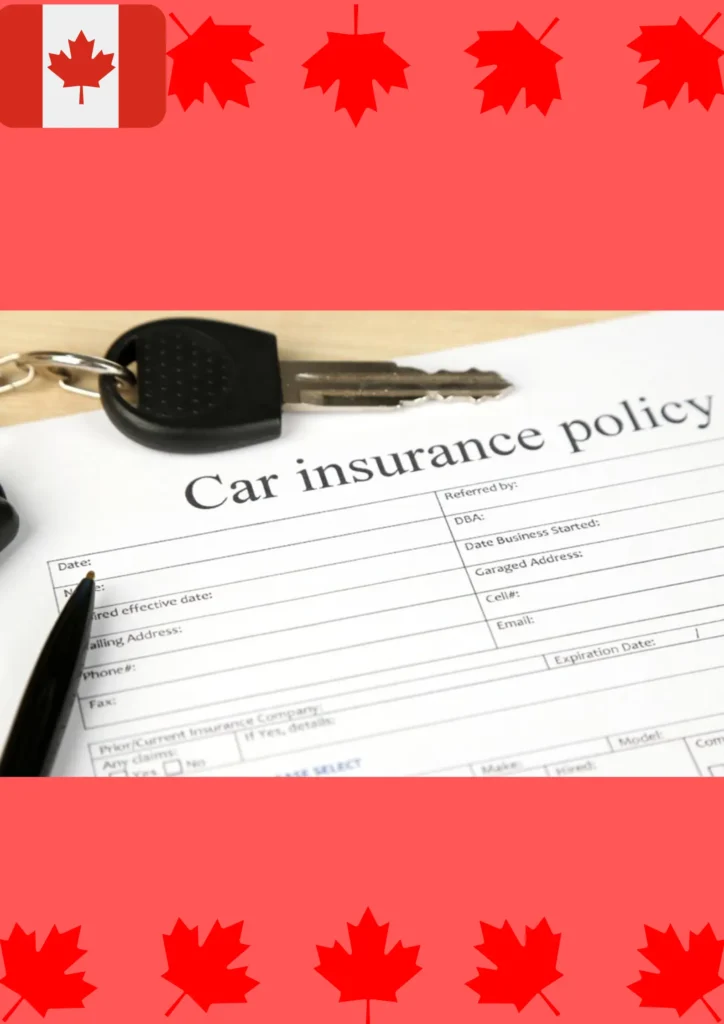Vehicle insurance and registration are key elements of responsible vehicle ownership and play a key role in ensuring road safety, protecting people and their property, and promoting the smooth operation of traffic management systems.
In this comprehensive report, we delve into the meaning of vehicle insurance and registration, the processes involved, and their wider impact on both individual drivers and society as a whole.
Vehicle insurance: protection against uncertainty
Vehicle insurance is not just a legal requirement; it is a financial safety net that protects individuals and their assets against accidents, theft, or other unforeseen circumstances. In Ontario, Canada, as in many other jurisdictions, valid auto insurance is mandatory for all vehicle owners. This requirement is based on the understanding that traffic accidents and unexpected accidents on the road can lead to significant financial liabilities.
The main purpose of vehicle insurance is to cover losses caused by accidents or other insured events. This policy usually covers bodily injury, property damage, and medical expenses. In addition, insurance can protect against theft, vandalism, and natural disasters. Without insurance, individuals would be personally responsible for the costs associated with these events, which could lead to financial ruin.
In Ontario, the government created a regulatory framework for the auto insurance industry. The Financial Services Regulatory Authority of Ontario (FSRA) oversees insurance regulations and ensures that insurance companies adhere to established standards. This regulatory framework aims to strike a balance between protecting consumers and maintaining a competitive insurance market.
When purchasing auto insurance in Ontario, individuals must consider factors such as coverage limits, deductibles, and optional coverage. Different types of coverage offer different levels of protection and vehicle owners need to tailor their policies to their specific needs and circumstances. In addition, factors such as driving history, vehicle type, and the age and location of the driver affect premiums.
In addition to personal protection, vehicle insurance also plays a key role in maintaining the overall stability of the transportation system. The insurance provides compensation for medical expenses, property damage, and legal expenses in case of an accident. This, in turn, prevents a scenario where at-fault drivers are unable to compensate others for their losses, thus promoting a fair and proper resolution of accidents.
Despite mandatory car insurance, there are still cases where people drive without insurance. This is a risk not only for uninsured drivers themselves but also for other road users. To deal with this problem, the authorities implement measures such as road inspections and penalties for driving without insurance. Increased oversight helps maintain the integrity of the insurance system and ensures that all drivers share in the collective protection afforded by insurance coverage.
Vehicle Insurance Registration: In addition to legal requirements
Vehicle registration is another important part of responsible car ownership. In Ontario, as in many other jurisdictions, vehicles must be registered with the provincial government. This process includes gathering information about the vehicle and its owner, making sure it meets safety standards, and obtaining the necessary number plates.
Registration fees finance road infrastructure and road maintenance and ensure the sharing of costs related to road construction and maintenance between vehicle owners. These payments also support various government initiatives related to road safety, environmental protection, and public services.
In addition to legal and economic dimensions, vehicle registration has an impact on road safety. The process ensures that the vehicle meets safety standards that are crucial to preventing accidents caused by mechanical failures. It also enables authorities to monitor vehicle recalls and issue notifications to owners, contributing to the overall safety of the road network.
The registration process usually involves paying fees, submitting required documents, and meeting security standards. In Ontario, the Ministry of Transportation oversees vehicle registration and ServiceOntario centers facilitate the process. Vehicle owners must periodically update their registration and ensure that the files are correct and that the vehicle continues to meet safety standards.
Furthermore, vehicle registration is linked to wider environmental protection measures. Many jurisdictions, including Ontario, have launched initiatives to encourage the use of environmentally friendly vehicles. This includes incentives for electric and hybrid vehicles, which may take the form of reduced registration fees or other benefits. These initiatives are in line with global efforts to reduce carbon emissions and promote sustainable transport practices.
Interaction of insurance and registration
Although vehicle insurance and registration are separate processes, they are related in many ways. In particular, both are mandatory requirements for vehicle owners in Ontario. Before registering a vehicle, people must submit an insurance declaration. This association provides insurance for registered vehicles consistent with the general purpose of protecting individuals and their property against accidents or unforeseen events.
In addition, insurance companies often require accurate information about the registered owner and vehicle during the insurance process. Vehicle registration information, including the vehicle identification number (VIN) and license plate, is critical for insurance companies to assess risk and determine appropriate coverage and premiums.
When individuals change insurers or update their coverage, they should submit this information to the appropriate agencies to ensure files are updated. Failure to do so may result in administrative problems, including potential problems with claim processing. In addition, both insurance and registration contribute to the general safety and orderliness of the road network. Insurance ensures that drivers bear financial responsibility in the event of an accident, while registration helps authorities monitor and control vehicles on the road. Combining these two processes increases the responsibility of vehicle owners and promotes a system where.

